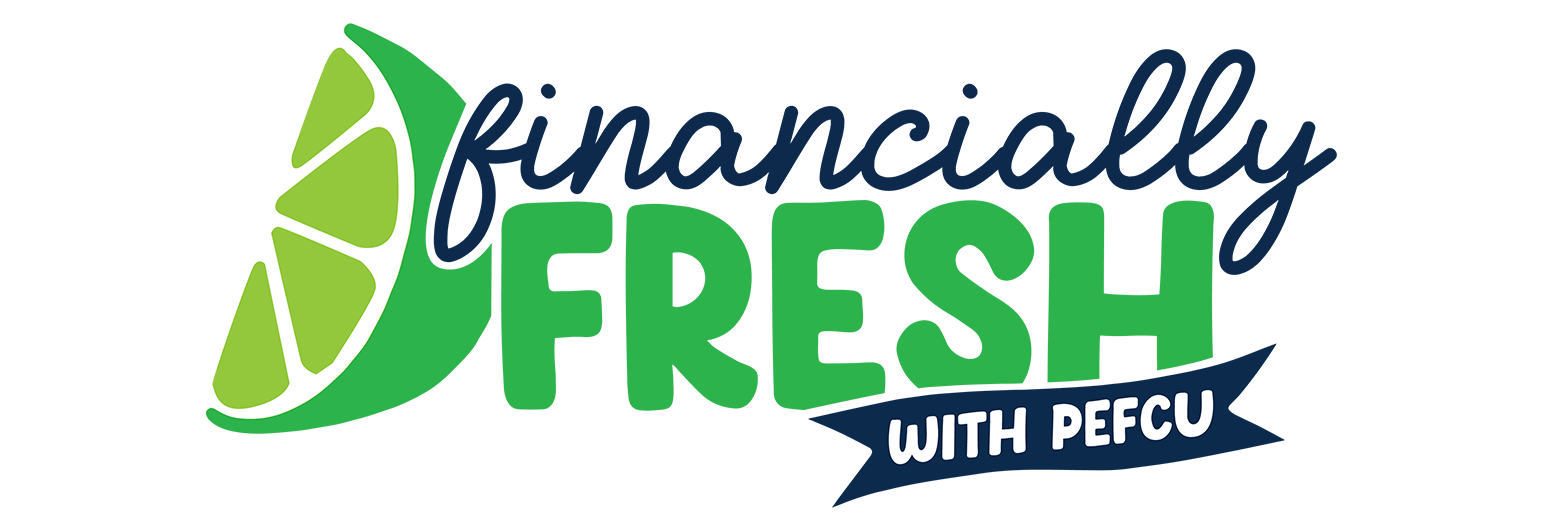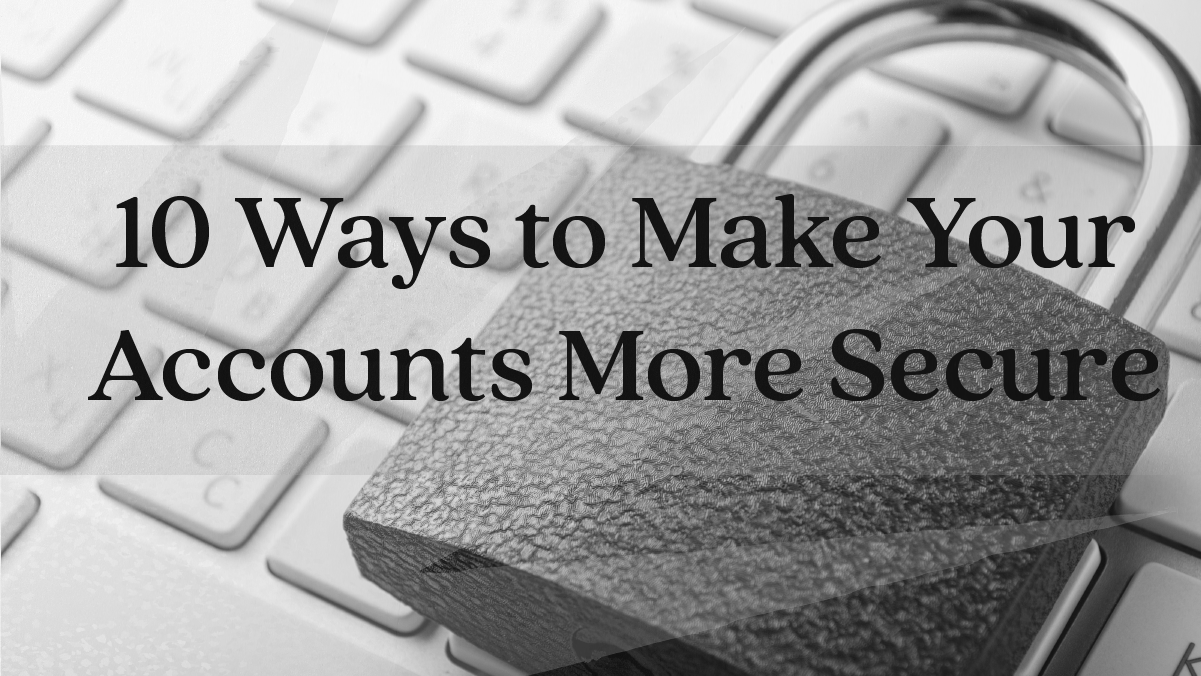September 6, 202110 Ways to Make Your Accounts More Secure
With online transactions increasing each year, it’s more important than ever to be vigilant in protecting your identity. Identity theft and fraud are on the rise, and scammers are becoming smarter and more creative with targeting you and your accounts. However, figuring out how to best protect yourself can be overwhelming. Below are ten things you can start doing right now to secure your accounts better.
1. Change Your Online Banking Password Regularly
Remember to change and update your online banking passwords regularly. You should try to change them every three to six months to help lower the chances of your password being decoded or stolen by hackers.
2. Close Old Accounts
If you have old financial accounts from years past that you no longer use, they may be vulnerable to being hacked. And sometimes, they make an excellent opening for hackers to access the more valuable accounts you use regularly. Therefore, it makes sense to close the old accounts you’re not using and keep the number of accounts you have down to a minimum.
3. Use a Strong Password
Create strong and complex passwords. Your passwords should include eight to twelve characters, symbols, numbers, and upper and lowercase letters. Whenever possible, use a multi-factor ID for added protection.
4. Never Share Your ATM or Debit Card PIN
Never give your PINs, passwords, or personal information to anyone, especially not over the phone or internet. This includes:
- Social security numbers
- Bank account information
- Passwords
- Credit card numbers
- Debit card PIN
If you’re interacting with a business or financial institution, make sure any private or financial information you submit online is via a secure form. You can tell if the webpage you’re visiting is secured by the HTTPS:// in the web address.
5. Keep Your Mobile Phone Screen Locked
Require a passcode, fingerprint lock, or PIN to open your mobile phone or device. Also, consider which personal information you allow apps to use. For instance, not all apps need access to your location or your pictures. Go through each app and decipher what access is most appropriate for each.
6. Log Out When Finished with Online or Mobile Banking or Other Apps
It might make sense to stay logged in to your favorite services or apps, so you won’t have to enter your password each time you want to check your account. The problem is that unlocked apps make it simpler for anyone picking up your device to access your accounts. While most financial institutions will log you out automatically after a certain period of inactivity, it’s wiser to log out manually and know your session is closed.
7. Don’t Log in to Online or Mobile Banking Using Public Wi-Fi
Use public Wi-Fi with extreme care. When using Wi-Fi, be sure you trust the host. Hackers are notorious for parking in public places and tapping into Wi-Fi networks to gain access to people’s information. If your work requires you to travel and doesn’t furnish you with a Virtual Private Network (VPN), you might want to consider subscribing to your own reputable VPN provider. Also, ensure your home’s Wi-Fi is password protected.
8. Use Firewalls and Antivirus Software on Your Devices
There are numerous antivirus and malware programs available. Some you can set up for free, and others might cost you a little to take out a subscription. Most subscriptions allow you to protect all your devices, not just your computer, as in years past. So, it’s well worth using one, even if it causes your device to run a little slower. Firewalls are also crucial to the security of each of your devices.
9. Use a Two-Factor Authentication
Two-factor authentication is vital for securing your financial information. The first time you log in to your credit union’s mobile or online banking, you’ll receive a code via email or text. The code and password confirm you’re the only one who’s accessing your account. Each time you log in from a new device, this two-factor identification will be prompted.
Two-factor authentication is more secure than security questions. It can be easy for security questions to be found on the internet. For instance, your favorite activity or mother’s maiden name could easily be found if you’ve posted about either of them at any point on social media.
10. Turn Alerts On
Always be in the know of what’s going on with your financial or other accounts. Sign up for both text and in-app alerts to be notified about all activity on your accounts.
We’re Here to Help!
As each day passes, technology becomes a bigger part of our lives. It’s crucial you keep your online accounts secure. Although we invest in the best security for your PEFCU accounts, the tips we just shared will help you protect yourself even more so.
If you have questions about the security of your accounts or believe you may have been a victim of fraud, please stop by any of our branch locations or call (800) 226-6673 during our regular hours. We’re always here to help.
Each individual’s financial situation is unique, and readers are encouraged to contact PEFCU when seeking financial advice on the products and services discussed. This article is for educational purposes only; it does not constitute legal advice. If such advice or a legal opinion is required, please consult with competent local counsel.



One Comment